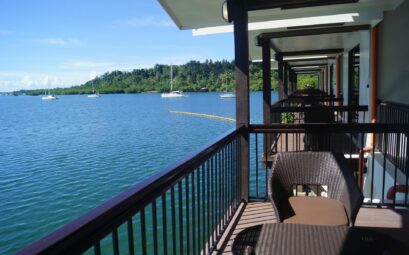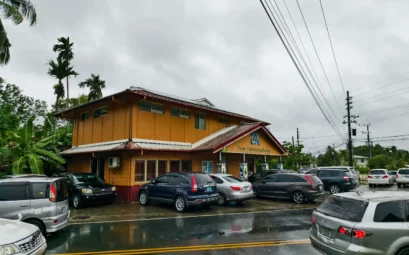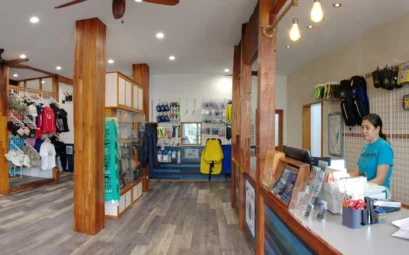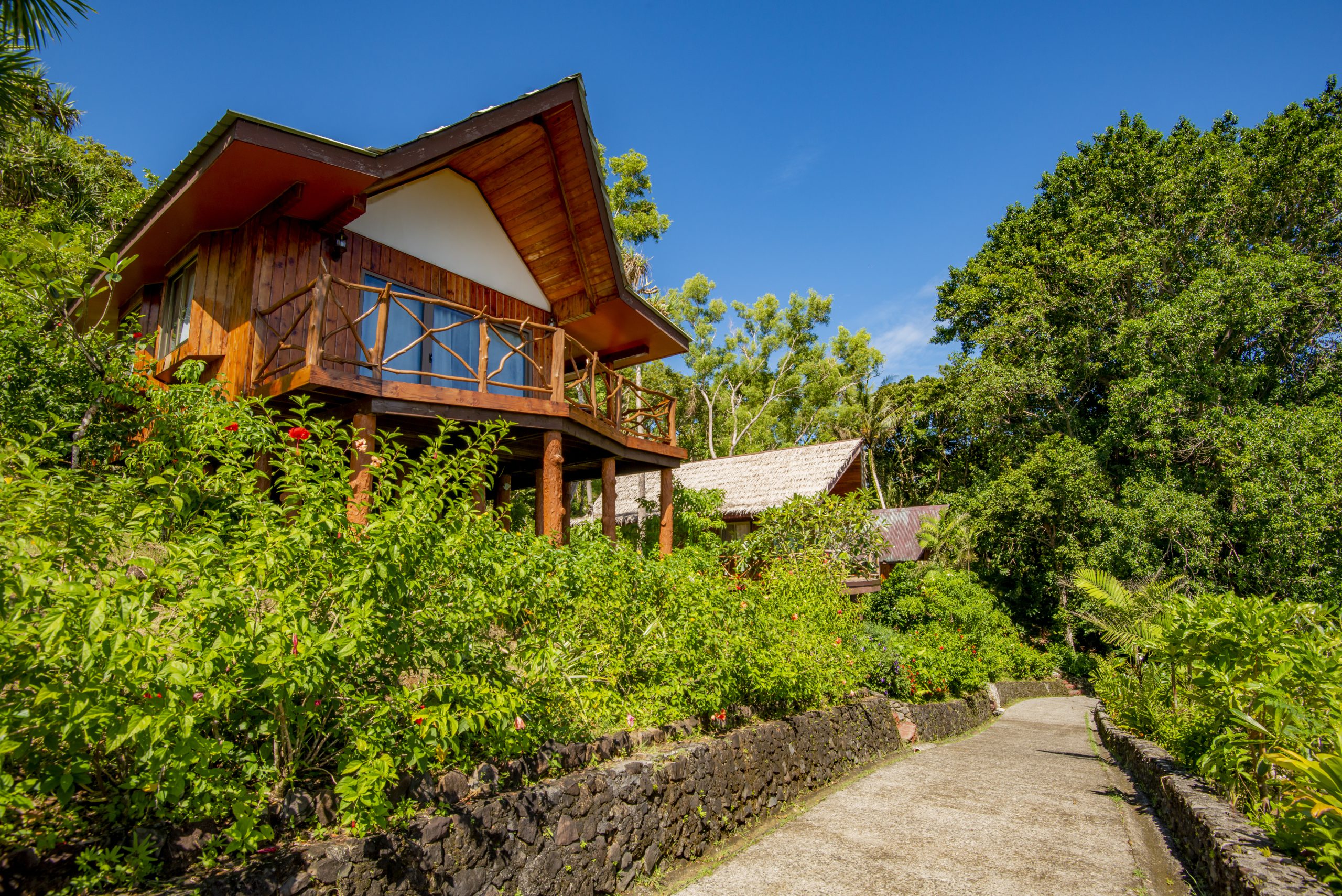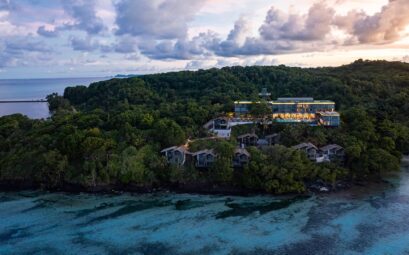Explore Local Delicacies and International Cuisines at The Penthouse Hotel’s Renowned Restaurant
Nestled in the vibrant heart of Koror, the capital of Palau, The Penthouse Hotel invites travelers to indulge in a culinary journey that bridges local traditions and international flair. As a 100% locally owned establishment, this cozy hotel not only offers 23 beautifully furnished rooms but also a renowned restaurant that serves up a delightful fusion of Palauan delicacies and global cuisines. Whether you’re savoring fresh seafood dishes inspired by the island’s rich marine life or exploring an array of international flavors, the dining options at The Penthouse Hotel Palau promise an unforgettable experience. Beyond its culinary offerings, the hotel enhances your stay with beauty services at accessible rates, ensuring that every aspect of your visit is both relaxing and enriching. Join us as we delve into the flavors and comforts of this charming locale, where tradition meets taste in a truly unique setting.

Discover the Penthouse Hotel Experience
The Penthouse Hotel in Palau offers a unique blend of traditional hospitality and modern conveniences. It stands out among local accommodations in Koror for its dedication to comfort and quality service. Here, guests can expect a personalized experience that reflects the warmth and culture of the island.
Cozy Hotels in Koror
Cozy hotels in Koror, like The Penthouse Hotel, provide a serene escape from the bustle of daily life. Each of the 23 rooms is thoughtfully designed, blending comfort and style to create a relaxing retreat. This hotel captures the essence of island living with its intimate and inviting atmosphere.
The rooms are fully furnished, featuring local art and decor that celebrate Palauan culture. Guests can unwind in these cozy accommodations, enjoying modern amenities such as air conditioning, Wi-Fi, and comfortable bedding. The hotel’s commitment to a homely feel ensures that travelers feel welcomed and cared for.
For those seeking additional comforts, the hotel offers personalized services such as room service and concierge assistance. This focus on guest satisfaction is echoed in numerous reviews, highlighting The Penthouse as a preferred choice among cozy hotels in Koror.
Local Accommodations in Koror
When exploring local accommodations in Koror, The Penthouse Hotel stands out for its authentic experience. As a 100% locally owned business, the hotel embodies the spirit of Palau. This ownership ensures that every aspect of the hotel resonates with local culture and traditions.
Guests benefit from the hotel’s central location, which allows easy access to Koror’s attractions and activities. The Penthouse Hotel is a gateway for adventure seekers and those interested in immersing themselves in the vibrant local scene. The proximity to shopping areas, cultural landmarks, and natural wonders makes it an ideal base.
The hotel’s local ownership is evident not just in its decor but also in the hospitality provided by the staff. Many employees are part of the family that has run the establishment for decades, ensuring a personal touch that enhances the guest experience.
Beauty Services Palau
Alongside its inviting accommodations, The Penthouse Hotel offers beauty services in Palau. These services provide guests with a chance to relax and rejuvenate during their stay. The hotel’s beauty shop is known for offering quality treatments at accessible rates.
Guests can indulge in a range of services, including hair treatments, manicures, and massages. This focus on wellness ensures that visitors can unwind and enjoy a holistic travel experience. Beauty services at The Penthouse Hotel are designed to complement the serene and tranquil environment of the island.
Affordable rates make these services accessible to all guests, enhancing the overall value of their stay. This commitment to guest satisfaction is a hallmark of the hotel, making it a leading choice for those seeking comprehensive amenities during their visit to Palau.
A Culinary Journey Awaits
The Penthouse Hotel is not just a place to rest; it is a destination for food lovers. The hotel’s restaurant offers diverse Palau dining options, blending local flavors with international cuisines. This culinary journey is a highlight for guests looking to explore the rich tastes of the island.

Palau Dining Options
The Palau dining options at The Penthouse Hotel are as varied as they are delicious. The restaurant specializes in showcasing local seafood, meats, and tropical produce, creating dishes that celebrate the island’s bounty.
Guests can enjoy an array of traditional dishes, each prepared with fresh, local ingredients. The menu reflects the cultural diversity of Palau, with influences from neighboring regions adding depth and complexity to the flavors. This commitment to quality and authenticity has earned the restaurant rave reviews.
Dining at The Penthouse Hotel is an opportunity to indulge in Palauan cuisine while enjoying the cozy and inviting atmosphere of the restaurant. This experience is further enhanced by the attentive service provided by the staff, ensuring a memorable meal.
International Flavors at Your Fingertips
In addition to its local offerings, The Penthouse Hotel’s restaurant brings international flavors to your fingertips. This diverse menu caters to travelers seeking familiar tastes alongside the local delicacies.
The chefs expertly prepare dishes from various cuisines, including Asian, European, and American classics. This variety ensures that every palate is satisfied, providing a taste of home for international visitors. The fusion of global flavors with local ingredients offers a unique dining experience.
The restaurant’s commitment to quality is evident in every dish. Each meal is crafted with attention to detail, ensuring guests can savor the best of both Palauan and international cuisines. This dedication makes it a standout option among dining establishments in Koror.
Must-Try Local Delicacies
No visit to The Penthouse Hotel is complete without sampling the must-try local delicacies. These dishes offer a true taste of Palau, showcasing the island’s culinary heritage with pride.
Popular choices include fresh tuna sashimi, coconut crab, and taro-based dishes. Each bite is a reflection of the island’s rich marine life and agricultural abundance. These delicacies are prepared with traditional methods, preserving the authentic flavors that have been enjoyed for generations.
Visitors can explore these tastes in a setting that balances comfort and elegance. The hotel’s restaurant provides the perfect backdrop for discovering Palau’s culinary treasures, allowing guests to connect with the island through its food.
More Than Just Dining
The Penthouse Hotel offers more than just exceptional dining. It is a hub of relaxation and adventure, providing guests with opportunities to explore and unwind. From its inviting accommodations to its accessibility to local attractions, the hotel is a complete travel experience.
Relaxation and Comfort
Relaxation and comfort are at the core of The Penthouse Hotel experience. The serene ambiance and attentive service create an ideal environment for unwinding. Guests can enjoy the tranquility of their rooms or relax at the hotel’s common areas designed for leisure.
The hotel offers various amenities aimed at enhancing guest comfort. These include cozy lounges, complimentary Wi-Fi, and room service options. Each aspect of the hotel is tailored to provide a seamless and enjoyable stay.
For those seeking additional relaxation, the hotel’s beauty services offer a chance to pamper oneself. This combination of comfort and service ensures that every guest leaves feeling refreshed and rejuvenated.
Explore Koror’s Attractions
Located in the heart of Koror, The Penthouse Hotel serves as a perfect base to explore Koror’s attractions. The city offers a wealth of activities for visitors to enjoy, from cultural landmarks to natural wonders.
Travelers can explore the local markets, visit historical sites, and enjoy the vibrant arts scene. The hotel’s central location makes it easy to experience the diverse offerings of Koror, whether one is interested in history, culture, or nature.
The friendly staff at The Penthouse Hotel are always ready to assist with recommendations and travel tips, ensuring guests make the most of their visit. This dedication to guest experience is part of what makes the hotel a popular choice on social media platforms.
The Penthouse Hotel Palau’s Unique Charm
What sets The Penthouse Hotel apart is its unique charm. This charm is evident in every aspect of the hotel, from its locally inspired decor to its warm and welcoming atmosphere. The hotel’s history and family-run nature contribute to its distinctive appeal.
Founded by Former First Lady Dilbuked Christina “Tina” Salii, the hotel has grown from a single-woman operation to a beloved local establishment. Tina’s vision of creating a home-away-from-home is still evident in the personalized service and familial atmosphere that guests experience.
This legacy of hospitality and community spirit is part of what makes The Penthouse Hotel a cherished destination in Palau. Guests leave not only with memories of their stay but with a lasting connection to the island and its people.








